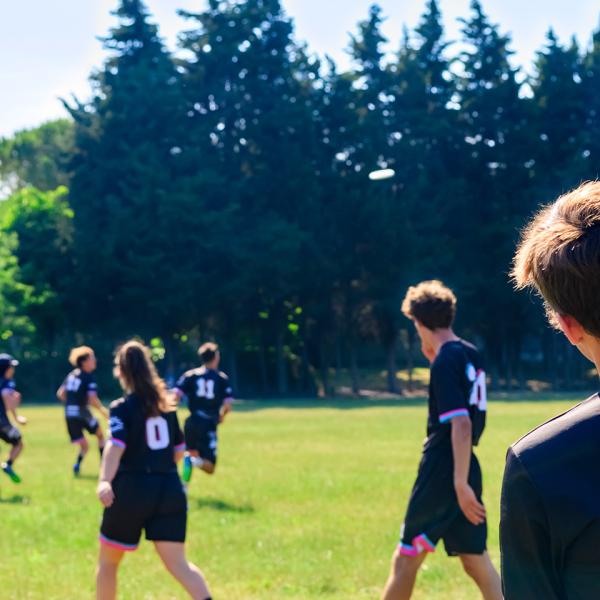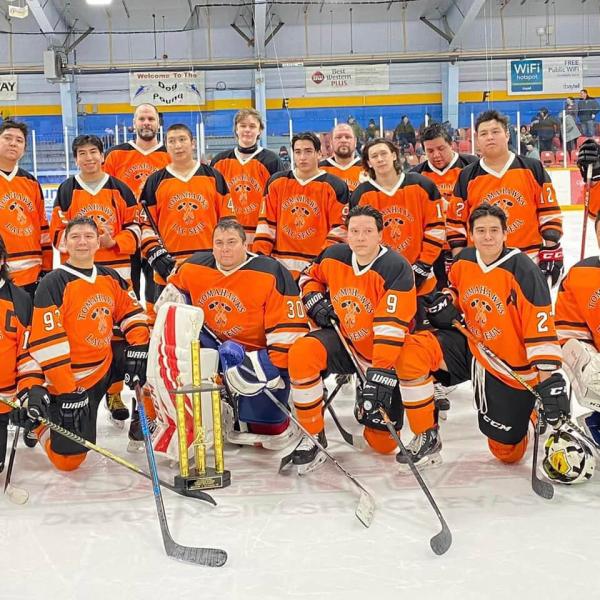Playing a sport is part of many young Canadians’ lives, whether recreational or competitive. In fact, three-quarters of Canadian youth participate in organized sports — most in a team setting. But what effect does being a member of an athletic team have on an adolescent’s personal and social development?
That’s the question researcher Mark Bruner has set out to answer. Bruner, who is the Canada Research Chair in Youth Development through Sport and Physical Activity, leads a team at Nipissing University’s Groups for Youth Development Laboratory (G4YD) in North Bay, Ont. They’re investigating the extent to which a young person’s identity is associated with the sports teams they play on, as well as how the experience shapes their behaviours, thoughts and development. To help answer these questions, Bruner and his researchers are tapping into the power of technology.
Technology provides a window into team dynamics
Thanks to CFI funding, the G4YD lab was able to purchase iPod Touches, video cameras and microphone equipment they use to gain insights about athletes’ interactions with teammates, coaches and parents as they discuss sport in a variety of social settings. So far, the researchers have tested the technology with youth and university-level athletes and coaches.
For example, in October 2017, they used the technology to gather data from competitive Peewee (age 11 to 12) and Bantam (age 13 to 14) hockey players (and coaches) taking part in a North Bay tournament. The three players who identified most strongly with their team, and the three players who identified the least, were given an iPod Touch to wear for the duration of the weekend tournament.
Through an app, snippets of their conversations were recorded throughout the day — during rides to the tournament games, on the bench, and on the drive home. The researchers also recorded video footage during the tournament, which they could then compare with the audio.
“Oftentimes, as researchers, we rely on self-reporting, surveys or interviews with athletes — after the fact,” explains Bruner. “With this technology, we can gather real-time, unobtrusive data that will actually allow us to gain better insights into what those interactions are like.”
Understanding the role sport plays in developing social identity
Bruner’s research uses what is called a “social identity approach.” It looks at how the identity youth associate with their team influences their development, experiences, and behaviour toward both their teammates and opponents. The data he and his team collect from athletes, such as those at the North Bay tournament, are part of a larger program that aims to promote interventions that Bruner says “foster stronger social identity as well as moral behavior.”
“Our work has really demonstrated that if they have strong social identities within the team, it can really translate into greater pro-social teammate behaviour and positive interactions,” says Bruner. “Before we can begin to try to offer coaches advice, I think it's really important for us to have an understanding of what is going on in the environment and identify strategies that will be most effective in creating a really positive developmental experience for youth.”
Giving coaches and sports organizations the tools to foster positive experiences
John Couch is a coach with the North Bay and District Trappers Hockey Association. His team took part in Bruner’s study. As a coach for the past 25 years, he says he’s always believed hockey is about more than “just what we do on the ice.” That’s why he hopes Bruner’s research might provide insights that could lead to beneficial changes in the sport.
“Maybe it will make us a little more cognizant of why kids are playing hockey and the importance of making it fun and creative, as opposed to it being something where players say ‘I’m just here because my parents want me to be,’” explains Couch. “I think it is just wanting to make sure that, as coaches, we realize there is more to coaching than just showing up to the rink and teaching hockey skills.”





